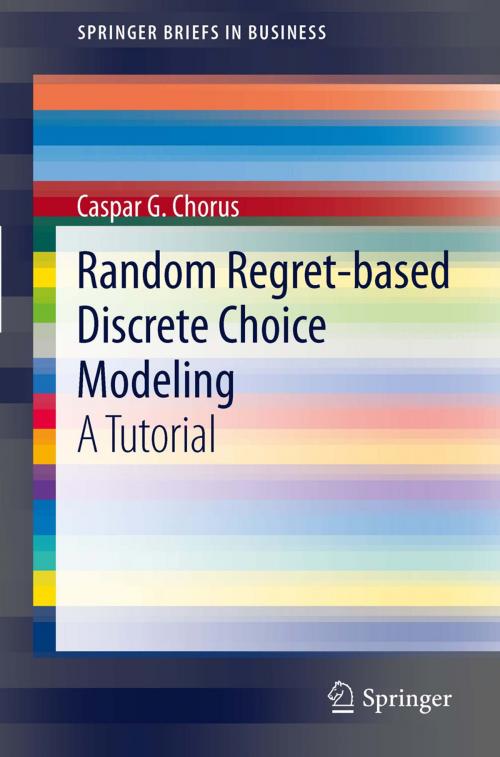Random Regret-based Discrete Choice Modeling
A Tutorial
Business & Finance, Management & Leadership, Operations Research, Planning & Forecasting| Author: | Caspar G. Chorus | ISBN: | 9783642291517 |
| Publisher: | Springer Berlin Heidelberg | Publication: | April 5, 2012 |
| Imprint: | Springer | Language: | English |
| Author: | Caspar G. Chorus |
| ISBN: | 9783642291517 |
| Publisher: | Springer Berlin Heidelberg |
| Publication: | April 5, 2012 |
| Imprint: | Springer |
| Language: | English |
This tutorial presents a hands-on introduction to a new discrete choice modeling approach based on the behavioral notion of regret-minimization. This so-called Random Regret Minimization-approach (RRM) forms a counterpart of the Random Utility Maximization-approach (RUM) to discrete choice modeling, which has for decades dominated the field of choice modeling and adjacent fields such as transportation, marketing and environmental economics. Being as parsimonious as conventional RUM-models and compatible with popular software packages, the RRM-approach provides an alternative and appealing account of choice behavior. Rather than providing highly technical discussions as usually encountered in scholarly journals, this tutorial aims to allow readers to explore the RRM-approach and its potential and limitations hands-on and based on a detailed discussion of examples. This tutorial is written for students, scholars and practitioners who have a basic background in choice modeling in general and RUM-modeling in particular. It has been taken care of that all concepts and results should be clear to readers that do not have an advanced knowledge of econometrics.
This tutorial presents a hands-on introduction to a new discrete choice modeling approach based on the behavioral notion of regret-minimization. This so-called Random Regret Minimization-approach (RRM) forms a counterpart of the Random Utility Maximization-approach (RUM) to discrete choice modeling, which has for decades dominated the field of choice modeling and adjacent fields such as transportation, marketing and environmental economics. Being as parsimonious as conventional RUM-models and compatible with popular software packages, the RRM-approach provides an alternative and appealing account of choice behavior. Rather than providing highly technical discussions as usually encountered in scholarly journals, this tutorial aims to allow readers to explore the RRM-approach and its potential and limitations hands-on and based on a detailed discussion of examples. This tutorial is written for students, scholars and practitioners who have a basic background in choice modeling in general and RUM-modeling in particular. It has been taken care of that all concepts and results should be clear to readers that do not have an advanced knowledge of econometrics.















